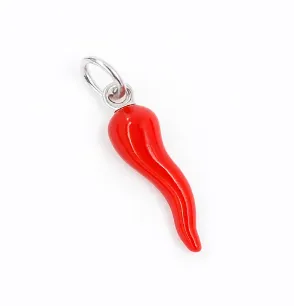 Conditional
Conditional
Lesson thirty-eight


Lesson thirty-seven
Giving instructions, making suggestions, offering advice, or telling someone what to do are everyday actions in any language. In Italian, these situations are handled using a specific verb mood called the imperative. You’ll hear it constantly in real-life conversations: at home, in restaurants, while traveling, or when speaking with friends and colleagues.
While English often relies on the base form of the verb to express commands (such as come here or sit down), Italian uses different verb endings depending on who you are addressing and how formal the situation is. This makes the imperative both powerful and nuanced, allowing speakers to sound friendly, polite, direct, or respectful.
In this guide, you’ll learn how the Italian imperative works step by step. We’ll cover regular and irregular forms, positive and negative commands, the use of object and reflexive pronouns, and the differences between informal and formal instructions. By the end, you’ll be able to confidently give commands, make suggestions, and understand imperatives when you hear them in everyday Italian.
The imperative is only used with the following pronouns:
Tu you, informal singular
Lei you, formal singular
Noi we, used to suggest doing something together, similar to the English let's
Voi you, plural
There is no imperative form for io (I), since you don’t typically give commands to yourself.
The noi form of the imperative is identical to the present tense of the verb and is used for making suggestions:
Andiamo al mare.
Let’s go to the beach.
Mangiamo qualcosa.
Let’s eat something.
Parliamo.
Let’s talk.
To create the imperative in Italian, start with the verb in its infinitive form and replace -are, -ere, or -ire with the appropriate endings.
Examples: mangiare, parlare, ascoltare, studiare
| Verb | tu | Lei | noi | voi |
|---|---|---|---|---|
| parlare | parla | parli | parliamo | parlate |
| ascoltare | ascolta | ascolti | ascoltiamo | ascoltate |
| studiare | studia | studi | studiamo | studiamo |
Parla con me.
Talk to me.
Ascolta quando ti parlo.
Listen when I speak to you.
Studia per l’esame.
Study for the exam.
Porta questa borsa in cucina.
Take this bag to the kitchen.
Examples: chiudere, scrivere, smettere
| Verb | tu | Lei | noi | voi |
|---|---|---|---|---|
| chiudere | chiudi | chiuda | chiudiamo | chiudete |
| scrivere | scrivi | scriva | scriviamo | scrivete |
| smettere | smetti | smetta | smettiamo | smettete |
Per favore, chiudi la porta.
Please close the door.
Smetti di giocare e studia.
Stop playing and study.
Scrivi questa frase alla lavagna.
Write this sentence on the blackboard.
Rispondi alla mia domanda.
Answer my question.
Examples: partire, aprire, sentire
| Verb | tu | Lei | noi | voi |
|---|---|---|---|---|
| partire | parti | parta | partiamo | partite |
| aprire | apri | apra | apriamo | aprite |
| sentire | senti | senta | sentiamo | sentite |
Senti questa nuova canzone.
Listen to this new song.
Apri la finestra.
Open the window.
Vivi ogni giorno come se fosse l’ultimo.
Live each day as if it were the last.
Sali in macchina.
Get in the car.
Some -ire verbs like finire and pulire insert -isc- in the present tense. They keep this in the imperative as well.
| Verb | tu | Lei | noi | voi |
|---|---|---|---|---|
| finire | finisci | finisca | finiamo | finite |
| pulire | pulisci | pulisca | puliamo | pulite |
Finisci i compiti prima di andare a giocare.
Finish your homework before going to play.
Pulisci la tua camera.
Clean your room.
These verbs have a unique pattern:
| Verb | tu | Lei | noi | voi |
|---|---|---|---|---|
| tradurre | traduci | traduca | traduciamo | traducete |
| ridurre | riduci | riduca | riduciamo | riducete |
Traduci questa frase in italiano.
Translate this sentence into Italian.
To preserve the hard k or g sound, an h is added in certain forms except for tu.
| Verb | tu | Lei | noi | voi |
|---|---|---|---|---|
| cercare | cerca | cerchi | cerchiamo | cercate |
| pagare | paga | paghi | paghiamo | pagate |
Cerca di finire il lavoro in tempo.
Try to finish the work on time.
Paga il conto con la carta di credito.
Pay the bill with the credit card.
In Italian, the subject pronoun is usually omitted in the imperative, it's understood from the context.
Pulisci la tua stanza.
Clean your room.
Finisci la cena.
Finish your dinner.
Vai a buttare l’immondizia.
Go throw out the garbage.
To tell someone not to do something in Italian, simply place non before the verb. However, for tu, use the infinitive form of the verb instead of the imperative.
| Verb | tu | Lei | noi | voi |
|---|---|---|---|---|
| mangiare | non mangiare | non mangi | non mangiamo | non mangiate |
| chiudere | non chiudere | non chiuda | non chiudiamo | non chiudete |
Non mangiare con le mani.
Don’t eat with your hands.
Non parlare con gli sconosciuti.
Don’t talk to strangers.
Non fumare in macchina, per favore.
Please don’t smoke in the car.
When using object pronouns in the imperative, they are attached to the end of the verb (except in formal commands where they precede the verb).
Mangiala.
Eat it.
Scrivile.
Write to her.
Chiediamole di uscire.
Let’s ask her to go out.
Aiutami a fare i compiti.
Help me with my homework.
Portami un bicchiere d’acqua.
Bring me a glass of water, please.
Digli la verità.
Tell him the truth.
Gli scriva.
Write to him.
Mi può dire come arrivare in centro?
Can you tell me how to get to the city center?
Reflexive verbs follow the same rule: the pronoun attaches to the verb for tu, noi, and voi, and comes before the verb for Lei.
Sbrigati o perderemo il treno.
Hurry up or we’ll miss the train.
Siediti su quella sedia.
Sit on that chair.
Svegliati, è ora di andare a scuola.
Wake up, it’s time to go to school.
Se le interessa, c’è uno sconto su questo prodotto.
If you're interested, there's a discount on this product.
If the verb is only one syllable, double the first letter of the pronoun.
Dimmi che cos’è successo.
Tell me what happened.
Dammi una mano a sollevare la valigia.
Give me a hand lifting the suitcase.
Vammi a prendere un bicchiere d’acqua.
Go get me a glass of water.
Some common verbs do not follow regular patterns:
| Verb | tu | Lei | noi | voi |
|---|---|---|---|---|
| essere | sii | sia | siamo | siate |
| avere | abbi | abbia | abbiamo | abbiate |
| dire | di' | dica | diciamo | dite |
| fare | fa' / fai | faccia | facciamo | fate |
| dare | dà / dai | dia | diamo | date |
| stare | sta' / stai | stia | stiamo | state |
| sapere | sappi | sappia | sappiamo | sappiate |
| andare | va' / vai | vada | andiamo | andate |
| uscire | esci | esca | usciamo | uscite |
| venire | vieni | venga | veniamo | venite |
| bere | bevi | beva | beviamo | bevete |
Sii gentile con tuo fratello.
Be kind to your brother.
Abbi cura di te.
Take care of yourself.
Dimmi cos’è successo.
Tell me what happened.
Fai i compiti.
Do your homework.
Dai da mangiare al gatto.
Feed the cat.
Mi dia una mano, per piacere.
Give me a hand, please.
Stai lontano da me.
Stay away from me.
Sappi che ti voglio bene.
Know that I care about you.
Vai a comprare il latte.
Go buy the milk.
Esci con il cane.
Go out with the dog.
Vieni qui.
Come here.
Bevi molta acqua.
Drink lots of water.
The imperative is an essential part of Italian grammar, used to give commands, instructions, invitations, and advice. Unlike English, Italian imperatives change form depending on the pronoun used, and there is no imperative for io (I). The most common forms are tu, Lei, noi, and voi, each serving a different communicative purpose.
Regular verbs follow predictable patterns based on their endings (-are, -ere, -ire), while certain verb groups, such as -isc verbs, -care/-gare verbs, and -urre verbs—have specific spelling or formation rules. In addition, many common verbs form the imperative irregularly and must be memorized.
You’ve also seen how to form negative commands, how pronouns attach to imperatives, and how reflexive verbs behave in this mood. Mastering these patterns will greatly improve your ability to sound natural and confident in Italian, whether you’re giving simple instructions or speaking politely in more formal situations.
 Conditional
Conditional
Lesson thirty-eight
 Indefinites
Indefinites
Lesson thirty-nine
 Diminutives
Diminutives
Lesson forty
 Relative pronouns
Relative pronouns
Lesson forty-one
 Pronoun ne
Pronoun ne
Lesson forty-two
 Pronoun ci
Pronoun ci
Lesson forty-three